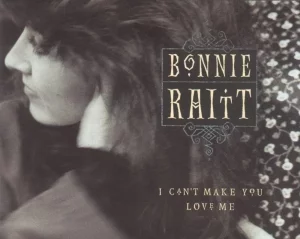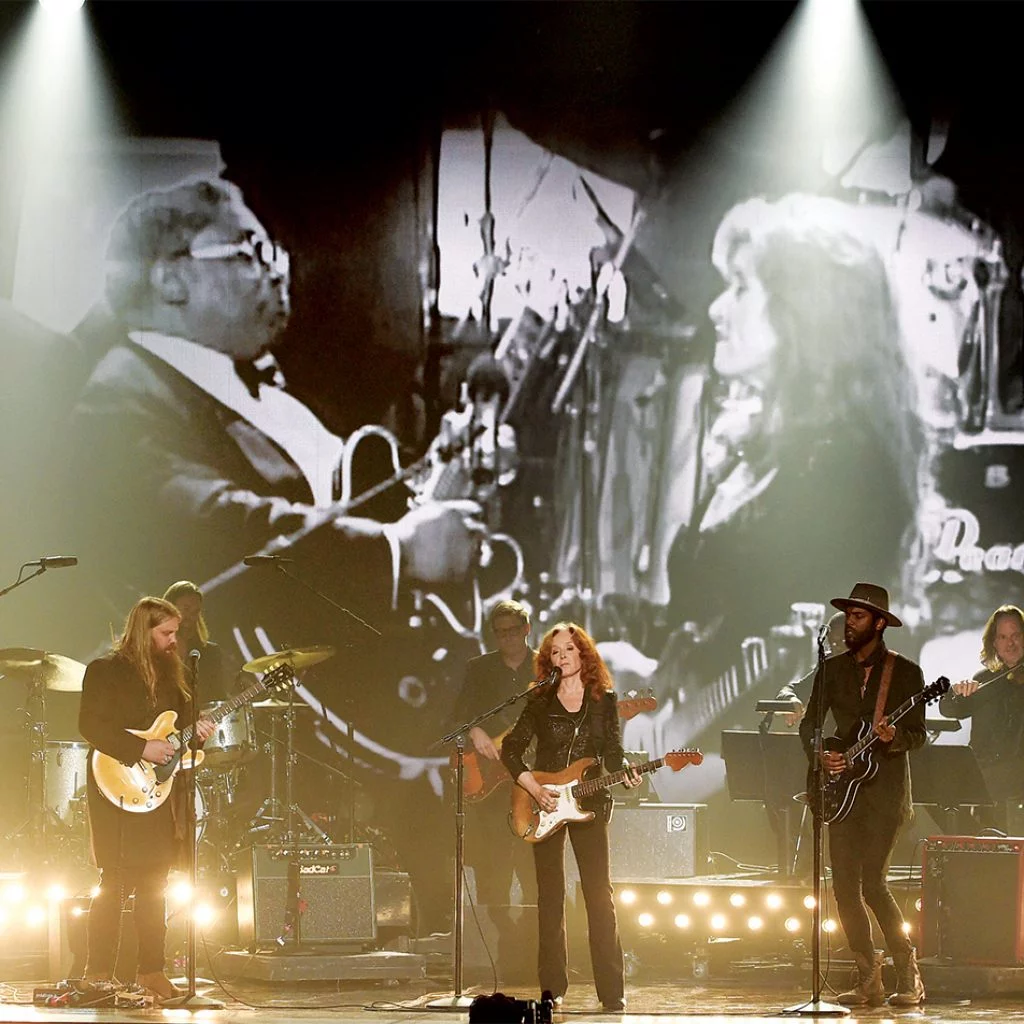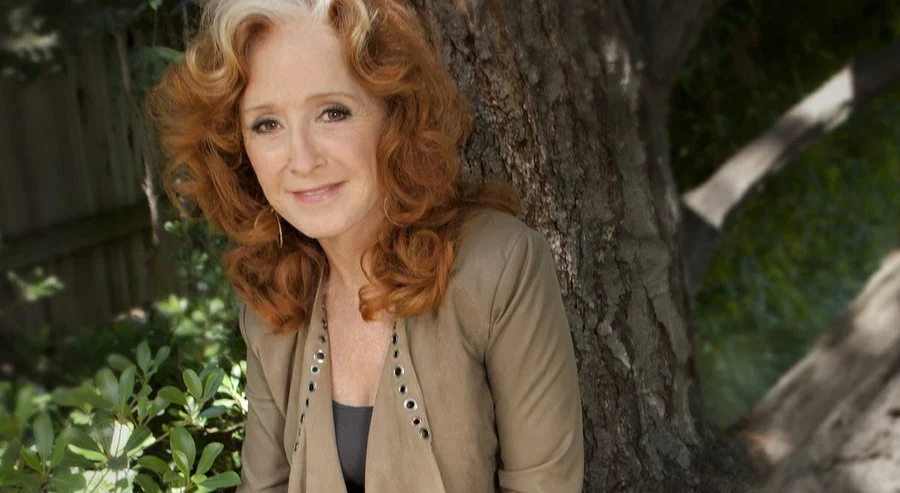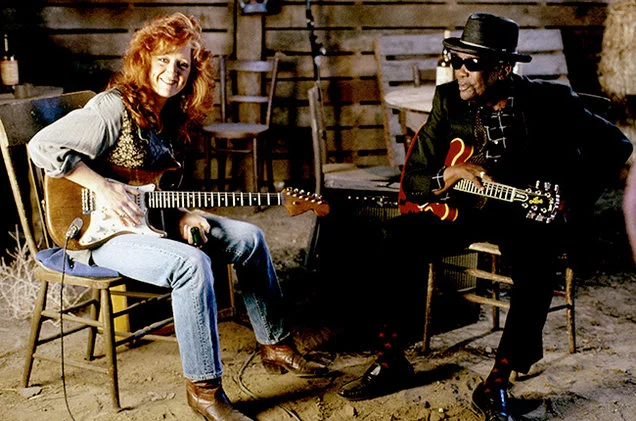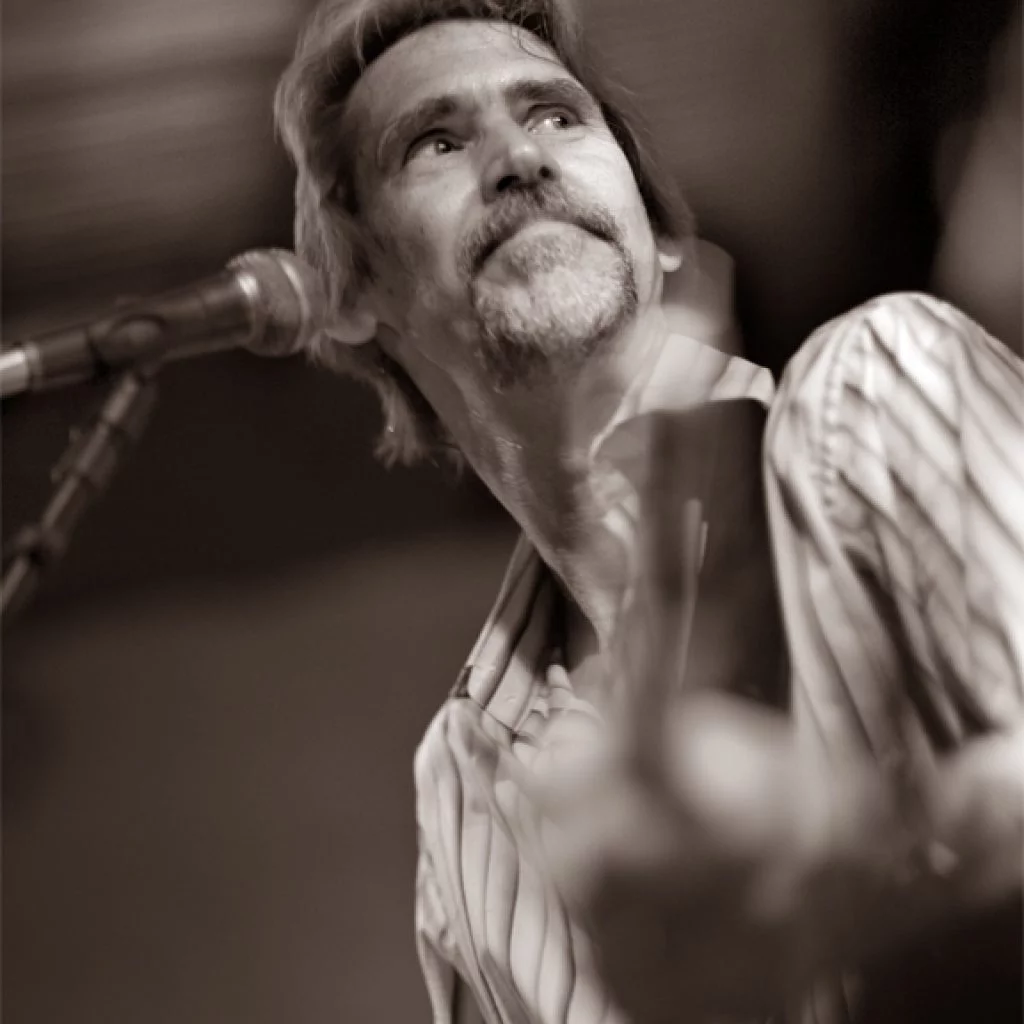
The music isn’t called just blue. It’s the blues; it holds a hundred shades of misery and ecstasy. And Bonnie Raitt, the show-biz baby who went to Radcliffe and looks like Meryl Streep’s grittier sister, finds those shades in her songs. She wears tinges of folk and rock, country and pop, but her regular outfit is multihued blue. She makes it so smart that when she sings it, it’s everyone’s favorite color.
Raitt knows the blues is gut music, halfway between groin pulse and heartbeat. The trick, or the wisdom, is to embrace those sexual and spiritual polarities. That’s Raitt’s strength. In a single phrase her voice can skip from sweet to rowdy, as if she were sipping church-social lemonade one moment and gargling rotgut the next. Meanwhile, her handsome slide-guitar work instantly sets a song’s mood. Over the course of the 12-song set on her fine new album, Longing in Their Hearts, Raitt takes you to hell and heaven and safely back home, wherever you live.

By now — she’s 44 and hitting the quarter-century mark in a career that flowered into stardom in 1989 with her multiplatinum, multi-Grammy-winner Nick of Time — Raitt has lived in most of the places she sings about. She has raised hell and been nearly crushed by it. The authority she puts into a lament called Circle Dance (“After a while I learned that love/ Must be a thing that leaves”) didn’t come from convent life. But the nights of high- wire partying are now song fodder; in one of her new tunes she sings, “Sometimes I miss that feeling of falling/ Falling on over the edge.”
Is there any future after such a fall? Not for some pop stars, whose recklessness has meant an early death. But Raitt’s path led to maturity — and no sentimental rue. “It’s hard to become a responsible, mature adult,” she says. “Sometimes we all want to drive way too fast or never come back to our family or just be out of control. Yeah, I miss the wilder days of youth. But do I miss staying up all night and getting messed up? No.”
In the Hollywood hotel room where Raitt is chatting, a visitor watches her search for missing car keys and asks if she belongs to the Automobile Association of America. That prompts a sassy, alto laugh: “These days I belong to A.A. and the Triple A. I’m pretty disgustingly healthy. I’m a vegetarian, I don’t eat dairy, I work out. My vice is torturing myself. My mind is my own trap. It is not easy to be awake with this brain all the time.”
Maybe not, but it must be an adventure. It has been from the start, when Raitt was born in Burbank, California, to John Raitt, robust tenor of Broadway (Carousel) and Hollywood (The Pajama Game), and his wife Marge. The Raitts were Quakers — no movieland socialites. Bonnie attended Quaker camps and then Radcliffe College. It’s unlikely that inside many Cliffies a singing sharecropper struggles to burst out, but Raitt had been touched by John Lee Hooker, Sippie Wallace and other emissaries from the delta. In 1970 she left school to sing the blues.
Raitt’s wide repertoire and potent musicianship soon earned her a following among the good ole boys on both sides of the footlights. She spent more time on the road than Wile E. Coyote; she played (and still does) untold free dates in support of liberal causes. But her record company, Warner Bros., eventually dropped her, finding her mix of bar-band rock and oozy blues tough to market. “It’s not rock,” Raitt says. “It’s rock ‘n’ roll and rhythm ‘n’ blues. That ‘n’ in the middle is important: it’s a swing back and forth. I’m more interested in the side-to-side than the up-and-down.”
Switching to Capitol Records and teaming with ace producer Don Was, Raitt finally found the up. Nick of Time and Luck of the Draw (1991) made her a best seller without selling her out. “Here I am, not having sought it, but somehow getting it,” she says. “But the idea of playing the game of being ‘hot’ is offensive to me.” The fact is, Raitt loves the road; hot or cold, she’ll be happy as long as she’s working. “When the lights go down, it is the same gig as 15 years ago. I have the coolest job of anyone I know.” On the new album that joy comes through in its most splendid form in You, a moving declaration of love. In Raitt’s poignant voice you can hear the ache of angels as they gaze down on a dark and tangled earth.
In 1992 she wed actor Michael O’Keefe, 38, now a regular on TV’s Roseanne and Raitt’s occasional songwriting partner. “It’s been satisfying and very challenging,” she says. “When you have two strong personalities, it’s an adjustment to learn how to compromise. There’s a constant thrust and parry in allowing the other person to have some space. It’s a classic case of ‘I can’t believe I’m saying these things that I heard my parents say across the dinner table.’ “
A knowledge of the blues tells Raitt that life is a heroic struggle. “Just because you have some of your dreams realized,” she says, “doesn’t mean you’re necessarily going to be content.” The hurt and the hope are evident in her new album’s last cut, Shadow of Doubt, in which Raitt sounds like a Mississippi field hand, bent by age and travail: “Oh but Lord no/ Don’t make it easy/ Keep me workin’/ ‘Til I work it on out/ Just please, please/ Shine enough light on me/ ‘Til I’m free from/ This shadow of doubt.”
Prayer answered. Bonnie Raitt is out of the shadow, into the light.













 Visitors Today : 57
Visitors Today : 57 Now Online : 2
Now Online : 2








